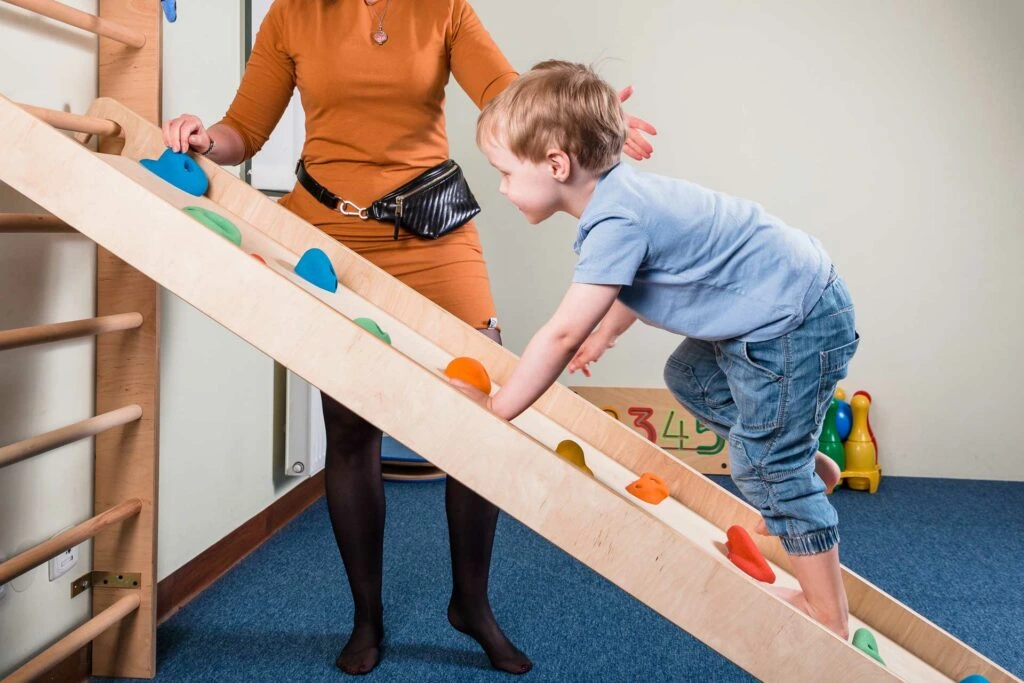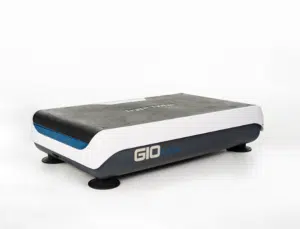By Francesca Resurreccion PT, DPT
Parenthood is a journey filled with joy, wonder, and sometimes, unexpected challenges. For some parents, the realization that their child may need additional support in the form of pediatric physical therapy services can be both daunting and confusing. However, seeking early intervention is crucial in addressing developmental concerns and ensuring a child’s optimal growth and well-being. In this blog post, we’ll explore the signs indicating when it’s time to consider pediatric physical therapy and the potential benefits of early intervention.
Understanding Pediatric Physical Therapy:
Pediatric physical therapy is a specialized branch of therapy focusing on enhancing children’s physical abilities and motor skills. Trained physical therapists work with parents and caregivers to address developmental delays, musculoskeletal issues, and other challenges that may affect a child’s movement and functional abilities.
When to Seek Early Intervention:
- Delayed Motor Milestones: One of the earliest signs that may prompt consideration of pediatric physical therapy consultation is a delay in achieving motor milestones. This includes activities like rolling over, sitting up, crawling, and walking. There’s a range in which your babies reach their milestones, remember that each child develops differently. If your child is ~2 months delayed, consider booking a free 15-minute virtual consultation with one of our PTs to talk about your concerns. A good rule of thumb is, if your baby is about 2 months delayed and not showing signs of achieving a milestone, then consider reaching out for a consultation. Early intervention is key to addressing delays and setting your baby up for success for future milestones!
- Tummy time: Baby is tolerating up to at least 60 minutes sprinkled throughout the day by month 3
- Rolling back to tummy: 4-6 months
- When to seek a consultation: ~6-7 months
- Rolling tummy to back: 3-5 months
- When to seek a consultation: ~6-7 months
- Crawling: 8-9 months
- When to seek a consultation: ~9-10 months
- Prop sitting: 6 months
- When to seek a consultation: ~7-8 months
- Independent sitting: ~7-9 months
- When to seek a consultation: ~9-10 months
- Transitioning into and out of sitting: 9-10 months
- When to seek a consultation: ~10-11 months
- Pulling to stand on low furniture: 9-10 months
- When to seek a consultation: ~10-11 months
- Cruising along low furniture: 10-11 months
- When to seek a consultation: ~11-12 months
- Walking: 12-18 months
- When to seek a consultation: ~14-16 months
- Muscle Weakness or Imbalance: If you notice that your child has difficulty with activities that involve muscle strength or balance, such as holding their head up, sitting without support, or walking steadily, it may be an indication that their muscles are not developing as expected.
- Orthopedic Issues: Children born with orthopedic conditions or those who develop musculoskeletal issues over time may benefit from early intervention. Conditions like torticollis, clubfoot, or congenital anomalies can impact a child’s physical development and may require specialized physical therapy.
- Premature Birth or Low Birth Weight: Premature infants or those with low birth weight may face developmental challenges due to their early arrival. Seeking the expertise of a pediatric physical therapist can help address any motor or developmental delays associated with prematurity.
- Difficulty with Everyday Activities: If you notice that your child struggles with everyday activities like participating in age-appropriate play, difficulty climbing the play structure at the park, or is tripping and falling often, it could be an indication that they may benefit from pediatric physical therapy to improve their fine and gross motor skills.
Benefits of Early Intervention:
- Maximizing Developmental Potential: Early intervention aims to identify and address developmental concerns during a child’s formative years, maximizing their potential for growth and progress.
- Enhancing Functional Independence: Pediatric physical therapy focuses on improving a child’s ability to perform everyday activities, promoting greater independence in self-care, mobility, and play.
- Preventing Secondary Complications: Addressing motor delays early on can help prevent secondary complications that may arise if developmental challenges are left unattended.
- Support for Parents and Caregivers: Early intervention involves collaboration between physical therapists, parents, and caregivers. It provides valuable guidance and support to families, empowering them to actively participate in their child’s development.
Regional Center
Families may receive early intervention services through the Regional Center, which is a phenomenal service funded by the government that provides occupational therapy, physical therapy, speech therapy, child development, and more for children ages 0-3 years old who are at risk for developmental delays. Families can call their local regional center to be connected with a service coordinator who can help get the services they need. Most services and support are free regardless of age or income. Visit the regional center’s website to learn more about their services. (https://www.dds.ca.gov/general/eligibility/)
Recognizing the signs that prompt consideration of pediatric physical therapy services is a crucial step in ensuring a child’s optimal development. Early intervention not only addresses current challenges but also lays the foundation for a child’s future success by fostering improved motor skills, functional independence, and overall well-being. If you have concerns about your child’s development, consulting with a pediatrician and a pediatric physical therapist can provide valuable insights and support on the best course of action for your child’s unique needs. Our PTs are here to support you and your child, feel free to book a free 15 minute virtual consultation with one of our PTs to go over any questions you may have using the link here.




